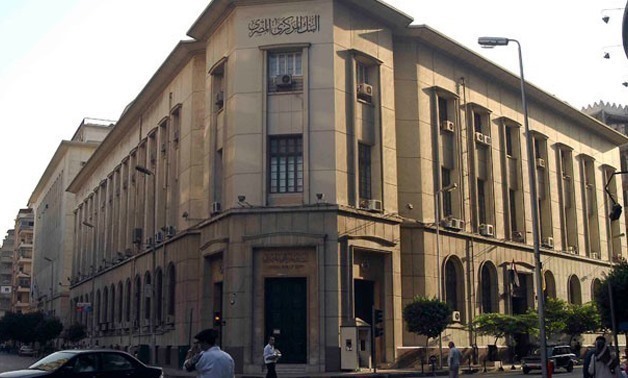
FILE - Central Bank of Egypt building in downtown Cairo
CAIRO – 27 December 2017: The Central Bank of Egypt (CBE) is expected to keep interest rates unchanged in its monetary policy meeting scheduled Thursday, Pharos Research said in a Sunday note.
In its previous meeting on November 16, the CBE’s Monetary Policy Committee (MPC) kept its interest rates unchanged. The bank put the overnight deposit rate and the overnight lending rate at 18.75 percent and19.75 percent, respectively.
The Cairo-based investment bank added in its latest report that it believes the current disinflation trend will continue, leading the annual inflation rate downwards to 14.4 percent year-on-year (y-o-y) in the fourth quarter of 2018.
The CBE said in mid-December that the urban consumer price inflation decreased to 26 percent in November, from 30.8 percent one year ago.
Inflation spiked in Egypt since authorities decided to float the pound in November 2016, leading the currency to lose more than 50 percent of its value against the U.S. dollar.
To mitigate soaring inflation, the CBE raised its interest rates by 700 basis points (7 percent) to absorb cash liquidity and support local currency.
The report added that economic activity has picked up significantly, recording an average of 5 percent y-o-y in the fourth quarter (Q4) FY2016/17 and first quarter of (Q1) FY2017/18, versus 3.6 percent in the first half (H1) FY2016/17, which was supported by acceleration in the oil and gas production, as well as services and tourism recovery.
It pointed out that growth dynamics have witnessed a positive trade balance contribution, in addition to lower contribution from domestic demand.
Pharos noted that tight financial conditions have helped provide macro stability by assuring policymakers’ seriousness to contain inflationary pressures, which in return supported economic growth.
In a recent statement, the International Monetary Fund’s First Deputy Managing Director David Lipton said that by tightening monetary policy early in the year, the CBE has managed to reverse high inflation, which was the main risk to macroeconomic stability.
The Pharos note added that the continuation of this disinflationary trend could open the door to a gradual easing of interest rates, but the CBE should remain vigilant and be prepared to tighten the monetary stance if demand pressures reemerge.
Comments
Leave a Comment